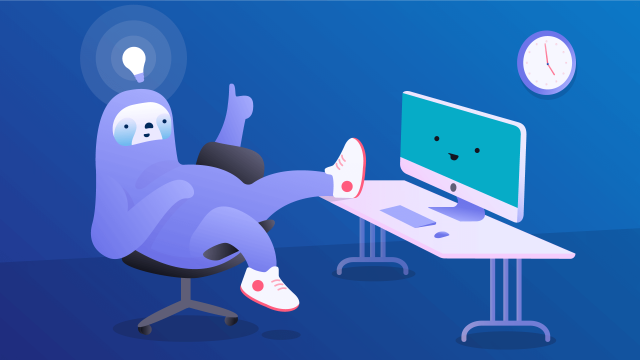Procrastination: The Guilty Pleasure of Life
Written by: Charvia Liesera
Procrastination is the act of delaying or postponing from doing a certain task. It comes from the Latin word procrastinare, ‘pro’ means forward and ‘cratinus’ means till the next day. Procrastination is also – as the famous saying goes – putting off what you can do today until the next day (or even many more days to come), that is, until deadline strikes hard. Procrastinating is often mistaken as being lazy. Similar, yet not the same. Procrastinating means that you have chosen to do something else, instead of the heavier-weight duties you are entangled with. Meanwhile, laziness is the unwillingness to act or do anything. When one procrastinates, it means we ignore their duties for a moment to do something else lighter, more enjoyable or easier for us.
Surveys have suggested that about 85-95% of student populations have problems associated with procrastination. Procrastination is thought to from lack of self-discipline, lack of motivation, distractions, and many other reasons. Many of us, have a huge power held in the world ‘tomorrow’. The power of tomorrow is so overwhelming, it holds so much more possibility for happiness or power than today. Procrastinators mostly say that they perform better under pressure. We wait and wait until deadlines are close, or until we are in the right mood to do it. Procrastination is often a symptom of perfectionism. Why? The fear of being unable to complete a task perfectly made them put it off aside as long as possible. Fear of imperfection, lack of self-confidence, indecisive behavior, anxiety, priority confusion and lack of focus are the most common causes of procrastinating.
As an impact of procrastination, we become less productive, have a low self-esteem and a feeling of guilt. We have our important works piled up and ended up doing it under great pressure. Fighting through our fatigue, working weeks’ or months’ worth or work over night, burning the midnight oil. Once it happens, we tend to realise our mistake, speak to ourselves ‘I should not pile up my work again next time’. But then the cycle repeats. Repeatedly, this can be a threat to our mental health.
“Putting it off doesn’t make it go away. Getting it done does” is a saying by Ned Hallowell. Procrastinating is not good, and procrastinators know that they should stop. Here’s a few things you can do to help you reduce it:
- Free yourself from your past regrets to feel better about yourself. Believe in yourself and the power you have, to do the things you are faced with.
- Break your task into smaller work to get it done. Our brain can prepare better for smaller chunks of work rather than a huge, untouchable stack.
- Make list of work when necessary and avoid multitasking to focus on one goal at a time.
- Start working with the most difficult task for the day.
- Remove distractions from your surroundings.
- Promise yourself a reward after finishing your day’s work. Do not take reward in advance! (For example, an episode of a drama for the night or a round of game after completing a day’s work, don’t do it the other way round!)
- A short break will help chill the mind, but don’t get carried on.
Changing habits will be a hard at first. But to change for the better good, we need to slowly overcome our wants for our needs. Know that you are not the only one fighting against procrastination, there are millions of us. Following Newton’s first law of motion, object will remain at rest or in uniform motion unless a force is applied. Likewise, to get us started, we just need that one strong push, and everything else will flow continuously. Always remember that your tomorrow depends on your today. The ‘you’ today who pile up your works, will trouble the ‘you’ tomorrow. Likewise, the ‘you’ today who do your work will reduce the burden on the future ‘you’.
Source:
https://www.mindtools.com/pages/article/newHTE_96.htm
https://en.wikipedia.org/wiki/Procrastination
https://www.psychologytoday.com/us/basics/procrastination
https://brandongaille.com/17-lazy-procrastination-statistics/
https://www.psychologytoday.com/us/blog/in-the-age-anxiety/201103/why-do-you-procrastinate
https://www.wikihow.com/Stop-Procrastinating
https://webstandardssherpa.com/reviews/breaking-the-perfectionism-procrastination-infinite-loop.html


